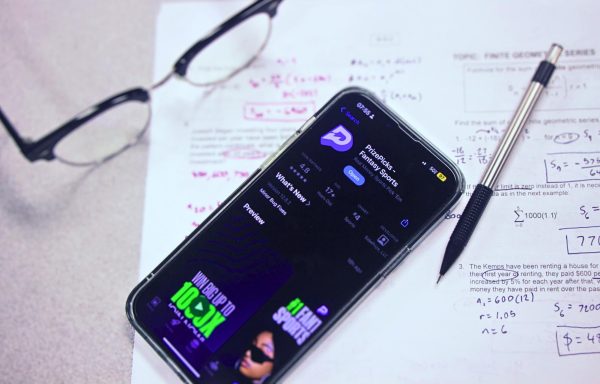Dual Credit Classes Save Time, Money for Motivated Students
Photo by: Chr
The College and Career office. Photo by Christian Casas de Leon.
 As a new year starts, Dual Credit (DC) classes are starting off strong. DC students are preparing for another year of college-level classes; however, as seniors begin their final year the question on their minds is are DC classes worth the extra credit?
As a new year starts, Dual Credit (DC) classes are starting off strong. DC students are preparing for another year of college-level classes; however, as seniors begin their final year the question on their minds is are DC classes worth the extra credit?
For senior Matthew Boodram, the answer is not so simple. Boodram has taken as many dual credit classes as possible during his high school years. During this time, Boodram has experienced first hand the pros and cons of DC classes. DC courses are college classes that are made available to high school students if they qualify for them, and students are expected to perform on a college-level at a younger age to be prepared for these classes.
Amber Stephens, Cy Creek’s college and Career Specialist, believes that even for students who are not interested in college in a traditional sense, DC classes can still provide benefits, such as career-related options.
“We have a program through our high school architecture classes that is dual credit that is called workforce dual credit,” said Amber Stephens.
Earning Dual Credit in the workforce will enable students to earn credits toward secondary certifications, such as a drafting certificate.
Due to the fast pace and advanced coursework, Dual Credit often demands more attention from students.
“I definitely have less free time in my life because of my DC classes,” said Boodram.
Even students such as Matthew find themselves struggling with balancing their school and personal lives. After earning their spot in DC classes, students still need to work hard to remain in those classes. However, learning time management may allow students to alleviate some of the stress.
“When I first started DC classes I was surprised by how much more work there was, but once I started to learn how to manage my time things started to feel easier,” said Boodram.
Students who take on DC classes know of the workload, so why do they still choose to accept the challenge? The lower prices for college-level classes and the possibility of finishing college early appeal to students.
Typically a Dual Credit class at Cy Creek costs roughly $78, but students taking multiple classes can end up paying roughly $300 or $400.
“Even though it’s a cost savings, it’s still a cost, and students need to prepare for that,” Stephens said.
While taking Dual Credit classes can be a money saving option, students still need to be prepared to pay for these college-level courses.
Boodram intends to pursue a four year college plan to obtain his Masters, but instead of taking him four years, he plans to obtain his degree in three. Many students taking Dual Credit classes also plan to follow a similar path. Finishing college earlier than other students helps to put their names at the top of the list of future employers.
“I want to be able to earn my Masters early instead of needing four years,” Boodram said. “I’m planning to only need three because of my DC classes,” said Boodram.
Career-oriented students who already have their jobs and careers planned out see DC as an early head start in their respective fields of work. DC classes in a student’s transcript can also benefit students during college applications. DC classes also allow students to get a feeling of what a real college curriculum feels like.
Despite the benefits of DC, Boodram warns future students of the dangers of taking on too many DC classes.
“Future Dual Credit students should keep in mind that they are still high school students taking on college-level courses,” Boodram said. “It’s important to know your limits and to remember to have a life outside of school.”
Dual Credit classes, while tempting for college-bound students, also come with additional stressors. Students are encouraged to take DC classes; however, students must also put a lot of thought into whether or not DC and AP classes are the right fit for them.







